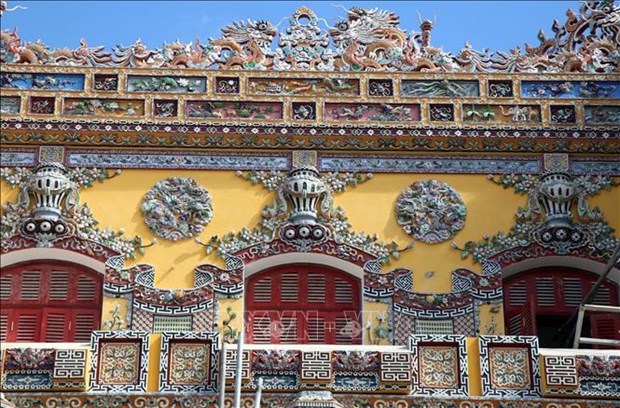Kien Trung palace to open to visitors during Lunar New Year
After five years of restoration and upgrade, Kien Trung Palace in Hue Imperial Citadel (Dai Noi) is set to open its door to visitors during the upcoming Lunar New Year (Tet holiday).

The restoration and upgrade of Kien Trung Palace in the Hue Imperial Citadel (Dai Noi) begins in February 2019. (Photo: VNA)
The palace, built between 1921 and 1923 under the reign of King Khai Dinh (1885-1925), once served as the living and working space of Bao Dai (1913-1997), the last king of the Nguyen Dynasty (1802 – 1945).
It incorporates elements from three distinct architectural styles - traditional Vietnamese, French, and Italian Renaissance - to embody an era of western influence in Vietnam.
It is among the five main palaces of the former royal citadel, along with Thai Hoa, Can Chanh, Can Thanh, and Khon Thai. In 1947, the palace was destroyed by the war, with only its foundation remaining intact.
Since winning the UNESCO recognition in 1993, the Complex of Hue Monuments has gone through the state of emergency to develop stably and sustainably. The Hue Monuments Conservation Centre has been working on dossiers to restore the Can Chanh Palace and Dai Cung Mon (Great Palace Gate).
Thua Thien-Hue is the only province in Vietnam and Southeast Asia to be home to five UNESCO-recognised cultural heritages. They are the Complex of Hue Monuments (1993-tangible heritage), nha nhac (royal music) (2003-intangible heritage), woodblocks of Nguyen Dynasty (2009-documentary heritage), documents of Nguyen Dynasty (2014-documentary heritage), and royal literature on Hue Royal Architecture (2016-documentary heritage)./.
VNA

